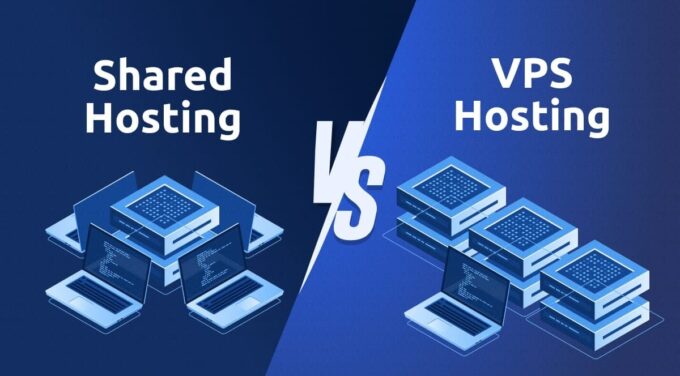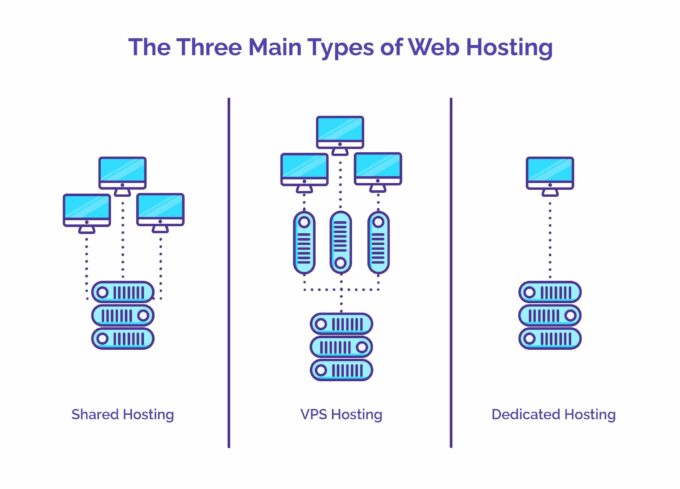Finding the right hosting setup can make or break your website’s performance, especially as your project grows. Whether you’re launching a personal blog, managing a small business site, or running a high-traffic application, choosing between shared, VPS, and dedicated hosting is a key decision. Each has clear upsides and some limitations, and making the right call depends on your goals, budget, and technical needs.
Let’s break it down honestly—no jargon, no fluff—just the real differences between shared, VPS, and dedicated hosting to help you choose what works for you.
Shared Hosting: Affordable and Beginner-Friendly

Source: ripemedia.com
Shared hosting is often the starting point for beginners—and for good reason. It’s cheap, easy to set up, and doesn’t require advanced technical knowledge. You’re literally “sharing” a physical server with dozens (or even hundreds) of other websites, which helps keep costs low.
But there’s a trade-off.
When traffic spikes on someone else’s site, it can affect your site’s performance. That means slower load times, less consistent uptime, and very little room to grow if your site starts attracting more visitors.
Pros:
- Low cost, great for personal sites or early-stage businesses
- Easy to manage with user-friendly dashboards (like cPanel)
- Web host provider handles server maintenance and updates
Cons:
- Performance can suffer due to “noisy neighbors”
- Limited resources and low scalability
- Minimal control over server configuration
If you’re launching a basic site and want minimal maintenance, shared hosting might be just fine. But if you’re expecting growth or need faster load times, it could quickly feel limiting.
VPS Hosting: More Freedom, Better Performance

Virtual Private Server (VPS) hosting is a step up from shared. You still share a physical server, but your website lives in its own isolated space with dedicated resources. It’s like renting an apartment instead of a bunk bed in a hostel—you still have neighbors, but your space is private.
This setup strikes a great balance between affordability and control. You can configure the server more to your liking and enjoy more stable performance—even during traffic spikes.
One place VPS hosting really shines is in tailored solutions. If you’re deploying complex platforms like ERP systems, using a managed Odoo hosting provider can save time and avoid misconfigurations. It’s especially helpful for businesses that need reliability without handling server admin themselves.
Pros:
- Dedicated RAM, CPU, and bandwidth allocation
- More control with root access for advanced users
- Scales better than shared hosting
- Ideal for medium-sized businesses, e-commerce, and resource-heavy apps
Cons:
- More expensive than shared hosting
- Requires some server management skills (unless managed)
- May not be enough for very large or high-traffic websites
If your site needs better speed, more customization, or plans to grow soon, VPS is a very solid middle-ground.
Dedicated Hosting: Full Power, Full Responsibility

Source: awardspace.com
Here, the entire server is yours. No sharing, no limits from other websites, and complete control over hardware and software configurations. This is enterprise-level hosting, perfect for sites with massive traffic or apps that need maximum performance.
It’s also the most expensive and demanding option. You or your team will need to manage updates, security, backups, and server performance—unless you pay extra for managed services.
Pros:
- Complete server control and root access
- Consistently high performance and speed
- Can handle large volumes of traffic
- Highly customizable based on your software and security needs
Cons:
- High monthly cost, not beginner-friendly
- Requires technical expertise to manage
- Overkill for small or moderate websites
This web host tier is best for companies with specific needs—like strict compliance, custom applications, or heavy resource usage. You’re paying for power and independence.
Comparing Hosting Types Side-by-Side

Let’s make this easy to digest. Here’s a comparison of the three main hosting types:
| Feature | Shared Hosting | VPS Hosting | Dedicated Hosting |
| Cost | Low | Moderate | High |
| Resources | Shared | Dedicated (virtual) | Dedicated (physical) |
| Scalability | Poor | Moderate | High |
| Performance | Variable | Consistent | Excellent |
| Technical Control | Minimal | Moderate to Full | Full |
| Best For | New blogs, small sites | Growing businesses, apps | Large businesses, custom apps |
Which Hosting Type is Best for You?
Choosing between shared, VPS, and dedicated web host depends mostly on your site’s traffic, purpose, and how much control you want.
- Go with Shared Hosting if you’re just starting out, building a portfolio, or launching a small blog.
- Upgrade to VPS Hosting if you’re running a business site, online store, or web app with growing traffic or resource needs.
- Choose Dedicated Hosting if you need top-tier speed, security, or infrastructure for custom applications.
And don’t forget investing in managed hosting can streamline your setup, avoid missteps, and give your team more time to focus on users rather than infrastructure.
Final Thoughts
Hosting isn’t just a technical choice—it’s a business one. Start too small and you risk crashing during your first traffic spike. Go too big too early and you waste budget on unused capacity. The best move is to match your hosting to your needs right now—but also keep an eye on where you’re headed.
Don’t be afraid to upgrade when the time comes. Good hosting should feel invisible: fast, stable, and secure—just like your site.



